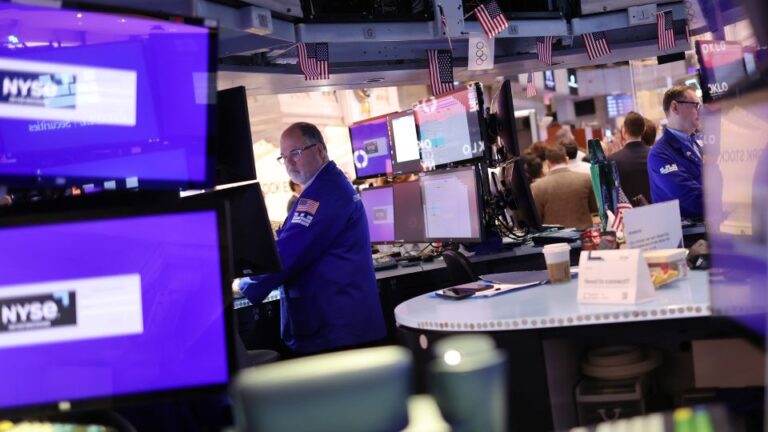American markets had a difficult week. The Dow Jones fell around 1,000 points in the last three days alone – and there are no signs of the negative momentum slowing on Thursday.
The Dow Jones was down 290 points, or 0.8%, as of early afternoon. The S&P 500 was down 0.3% and the Nasdaq Composite was down 0.5% due to weak results from Salesforce (RCMP) worried investors.
The actions of customer relationship management company fell 19.4% after reporting a revenue shortfall and lower expectations for the coming year.
This comes after a bad Wednesday where all 11 sectors of the S&P 500 closed lower. The Dow Jones fell more than 300 points, largely due to falling shares of chipmaking giant Nvidia (NVDA), dragging major technology stocks down with it.
This week’s slowdown was fueled by a range of factors, including earnings and economic data stronger than expected. Bonds were particularly hit by rising concerns about inflation and after weak Treasury auctions on Wednesday. The 10-year Treasury yield reached its highest level since late April.
Strong economic data has also spooked investors, who worry that signs of a stronger economy could prompt the Federal Reserve to keep interest rates higher for longer as it struggles to bring down inflation.
The S&P 500 has finished higher in 23 of the last 30 weeks, marking a common high since 1989, but is now headed for a negative week.
“There has already been a series of relentless gains in recent weeks that will continue to be difficult to maintain,” Deutsche Bank analysts wrote on Thursday. “It’s clear that the dynamic is now more negative.”
New economic data released Thursday showed that U.S. gross domestic product in the first quarter was revised downward (1.3% from 1.6%) and that personal consumption was slowing. This is a sign of slowing economic expansion – what some analysts see as a double-edged sword.
This data “could worry companies and stock market investors, but on the other hand, the slowdown in consumption and economic growth could be just the news we need for the inflation rate to continue to fall and allow “It’s up to the Fed to cut interest rates after all,” Chris Zaccarelli, chief investment officer at Independent Advisor Alliance, wrote Thursday.
Meanwhile, all eyes are on Friday’s release of the personal consumption expenditures index for April – the Fed’s preferred inflation gauge.
This story is developing and will be updated.
For more CNN news and newsletters, create an account at CNN.com


